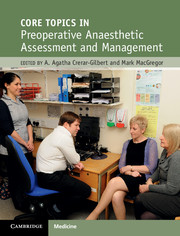
There are six (6) units of study, which define the POM specialty knowledge and skills. Each unit has been subdivided into a series of key themes and modules comprised of recommended guidelines, readings, texts and videos.
How to access e-resources
 Use your ANZCA college ID (or staff username) and password to access library e-resources.
Use your ANZCA college ID (or staff username) and password to access library e-resources.
 Having trouble logging into e-resources? Try emptying your browser cache, closing and reopening your browser, and trying again.
Having trouble logging into e-resources? Try emptying your browser cache, closing and reopening your browser, and trying again.
 Forgotten your ANZCA password? Try resetting your password using the "Forgot Password?" link and/or messaging the "Technical support" via the college contact form
Forgotten your ANZCA password? Try resetting your password using the "Forgot Password?" link and/or messaging the "Technical support" via the college contact form
 Want to learn more about SSO/MFA at ANZCA? See Protecting your data for more information, including instructions on how to set up MFA/SSO.
Want to learn more about SSO/MFA at ANZCA? See Protecting your data for more information, including instructions on how to set up MFA/SSO.
 Experiencing difficulties, or need help? Contact the Library
Experiencing difficulties, or need help? Contact the Library
Unit of study 1: Preoperative assessment - Index
Suggested texts
 Core Topics in Preoperative Anaesthetic Assessment and Management
by
Part of the popular Core Topics series, this book provides a practical guide to pre-operative assessment for consultants and trainee anaesthetists. Chapters cover comprehensive evidence-based guidance for assessing and managing patients with particular conditions, as well as perioperative risk stratification and challenges of pre-assessment.
Core Topics in Preoperative Anaesthetic Assessment and Management
by
Part of the popular Core Topics series, this book provides a practical guide to pre-operative assessment for consultants and trainee anaesthetists. Chapters cover comprehensive evidence-based guidance for assessing and managing patients with particular conditions, as well as perioperative risk stratification and challenges of pre-assessment.
 Frail and Elderly Hospital Patients The Challenge of Participation in Medical Decision Making
by
Frail and Elderly Hospital Patients The Challenge of Participation in Medical Decision Making
by
Quick links
About ANZCA
Copyright © Australian and New Zealand College of Anaesthetists.